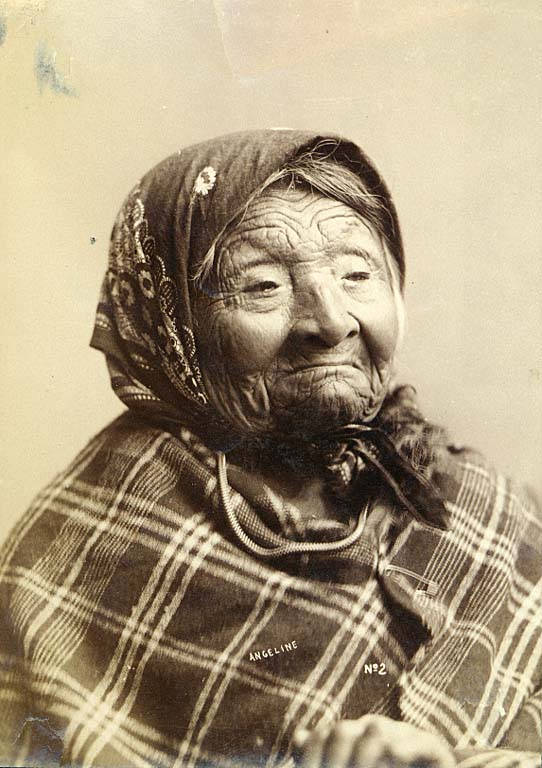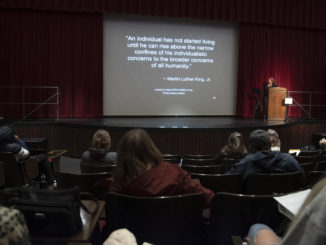
By Judah Breitbach
Sandra and Yasu Osawa’s film, “Princess Angeline,” reflects the intent of a project greater than a single piece of work. That project includes highlights like “Usual and Accustomed Places,” which has been shown at Peninsula’s own Magic of Cinema film series.

Prior to the showing of “Princess” on Nov. 12, the couple talked about their aspirations for the film and their project as a whole. They described their films as art; not an uncommon philosophy, but the Osawa’s made it clear that they wanted to distinguish between perceived or surface beauty, and a deeper beauty that can shape one’s world-view.
The filmmakers’ approached the making of the Princess Angeline film with that in mind. The intent to create something beautiful, meaningful, and even “radical” as Yasu Osawa said before the showing.
The Osawa’s film sheds long overdue light on the historic, yet all but forgotten struggles of the Duwamish tribe to gain federal recognition as an established ethnic group. Princess Angeline, as she was dubbed by the white settlers, is perhaps the figurehead of the Duwamish.
The daughter of Chief Seattle, also a prominent figure in native culture, the Princess stands out for her charisma and the strength of will, with a clarity of thought and temper that would be commendable of anyone, anywhere, at anytime.
She refused to leave the city limits of Seattle making her residence near modern day Post Alley, after the 1855 Treaty of Point Elliott made it illegal for Native Americans to live outside of reservations. Princess Angeline resisted at a time when natives were getting kicked out of their homeland to make way for a movement defined by the settlers as progress.
As if her refusal to acquiesce to the demands of the invaders of her people’s privacy wasn’t cause enough for near celebrity status, Princess Angeline was immortalized in the photography of Edward S. Curtis. When the renowned visual artist asked for her portrait, the Princess demanded the price of $1. A request just tenable enough that Curtis would return many times in the future.
A charismatic character defined Princess Angeline. Her strength of will gave her people a standard to hold to in future generations as the U.S. government continuously denied the Duwamish their identity as a tribe, and again when the Bush Administration deemed them extinct in the early 1990s. Tribal members continue to be recognized individually by the Bureau of Indian Affairs.
Both filmmakers emphasized the idea of history as knowledge. Sandra Osawa spoke about the importance of bringing to light the stories of lesser-known tribes. She likened the tribal system as analogous to a building.
By creating an awareness of native history, that structure is strengthened. Telling the story of the Duwamish tribe strengthens the foundation of that structure, she said, and thereby the structure as a whole.



